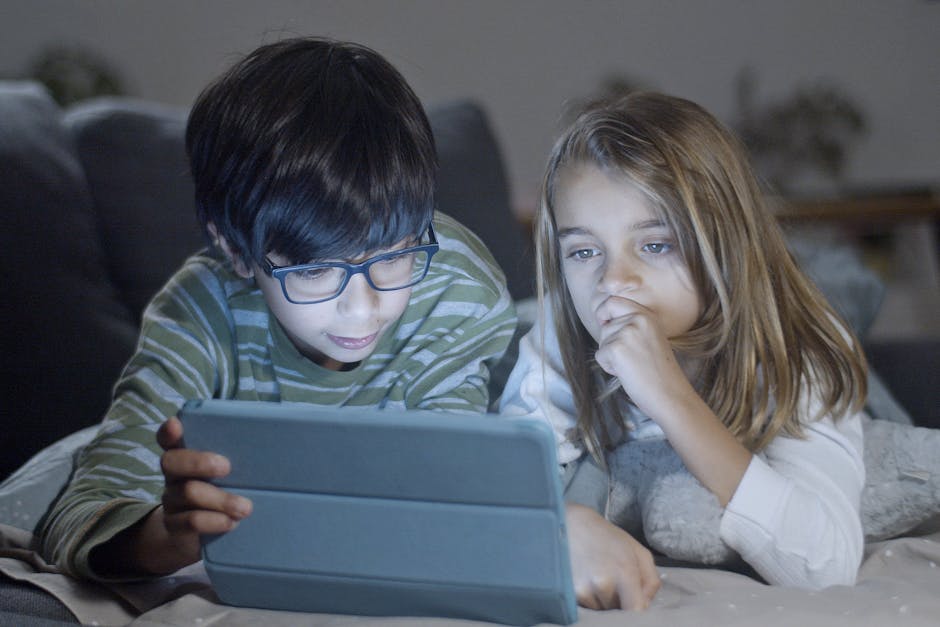Table of Contents
Did you know that a study found that children who are cyberbullied or shamed online are more likely to experience depression, anxiety, and even suicidal thoughts? The internet can be a powerful tool for connection and learning, but it can also be a breeding ground for negativity, especially when it comes to shaming children on social media. Why is this happening, and what can we do to stop it? Let’s take a closer look at the devastating impact this behavior has on young lives.
The Harsh Reality of Online Shaming
Online platforms offer an illusion of distance, emboldening some to say things they’d never utter face-to-face. When this negativity targets children, the effects can be particularly damaging. Shaming children on social media can range from seemingly harmless teasing to outright bullying, and its consequences can linger long after the comments are deleted. This is not just about kids being mean; it’s about the potential for long-term emotional and psychological harm.
Why Is Shaming Children on Social Media a Bad Thing?
Several factors contribute to the dangers of shaming children online. Understanding these reasons is the first step in combating this harmful trend.
Devastating Impact on Self-Esteem
Children are still developing their sense of self. Constant criticism and ridicule online can severely damage their self-worth, leading to feelings of inadequacy and insecurity. When a child is publicly humiliated, it can create a deep-seated belief that they are not good enough, which can impact their future relationships and opportunities. For example, if a child posts a video of themselves singing and receives mocking comments, they may become afraid to express themselves creatively in the future.
Increased Risk of Mental Health Issues
Cyberbullying and online shaming are strongly linked to mental health problems such as depression, anxiety, and even suicidal ideation. The constant exposure to negativity can lead to chronic stress and a sense of isolation, making it difficult for children to cope. Moreover, the anonymity afforded by the internet can make the abuse relentless and inescapable. Imagine a child constantly checking their social media, dreading what new hurtful comments await. This constant state of alert takes a massive toll.
Erosion of Trust and Relationships
When children are shamed online, they may struggle to trust others, including adults. They might become withdrawn and secretive, fearing further judgment. This erosion of trust can damage relationships with family, friends, and teachers, isolating the child further. When a child feels they cannot confide in anyone, they are left to deal with the emotional fallout alone, which can be incredibly damaging.
Normalization of Bullying Behavior
Witnessing online shaming can normalize bullying behavior among children. When kids see others being ridiculed without consequences, they may be more likely to engage in similar behavior themselves. This creates a toxic online environment where cruelty is commonplace and empathy is lacking. It’s crucial to teach children the importance of empathy and respect, both online and offline.
Difficulty Concentrating and Learning
The stress and anxiety caused by online shaming can significantly impact a child’s ability to concentrate in school and engage in learning. When a child is preoccupied with the online abuse they are experiencing, it becomes difficult to focus on academic tasks. This can lead to a decline in grades and a feeling of hopelessness, which can further exacerbate their emotional distress.
Strategies to Protect Children from Online Shaming
While eliminating online shaming entirely may be impossible, there are several strategies parents, educators, and children can use to minimize its impact.
Open Communication and Education
Talk to your children about the dangers of online shaming and cyberbullying. Educate them about appropriate online behavior and the importance of reporting any incidents of abuse. Create a safe space where they feel comfortable sharing their experiences without fear of judgment.
Setting Boundaries and Monitoring Online Activity
Establish clear rules about social media use, including time limits and appropriate content. Use parental control tools to monitor your child’s online activity and block access to harmful websites or apps. However, balance monitoring with respecting their privacy and fostering trust.
Encouraging Empathy and Respect
Teach children the importance of empathy and respect for others, both online and offline. Encourage them to think before they post and to consider the impact their words and actions may have on others. Discuss scenarios where they can stand up for themselves or others who are being bullied.
Promoting Positive Online Interactions
Encourage children to use social media for positive purposes, such as connecting with friends and family, sharing their interests, and participating in constructive discussions. Help them identify and follow positive role models online who promote kindness and respect.
Reporting and Seeking Help
Teach children how to report incidents of cyberbullying and online shaming to the appropriate authorities, such as the social media platform or school officials. Encourage them to seek help from a trusted adult, such as a parent, teacher, or counselor, if they are experiencing online abuse. Several organizations are dedicated to preventing cyberbullying and providing support to victims.
Common Mistakes to Avoid
Even with the best intentions, parents and educators can make mistakes when addressing online shaming. Here are some common pitfalls to avoid:
Ignoring the Problem: Dismissing online shaming as “just kids being kids” can invalidate a child’s feelings and prevent them from seeking help.
Reacting Too Harshly: Overreacting to an incident of online shaming can scare children and make them hesitant to confide in you in the future.
Blaming the Victim: Avoid blaming the child for being targeted or for posting something that attracted negative attention.
Failing to Take Action: Failing to report or address online shaming can send the message that it is acceptable behavior.
Tools and Resources for Prevention
Fortunately, numerous tools and resources are available to help prevent and address online shaming.
Parental Control Software: Programs like Qustodio and Net Nanny allow parents to monitor their child’s online activity and block access to harmful content.
Social Media Platform Reporting Tools: Most social media platforms have built-in tools for reporting abusive behavior and blocking users.
Anti-Bullying Organizations: Organizations like StopBullying.gov and The Cybersmile Foundation offer resources and support for children and families affected by cyberbullying.
Expert Insights
Dr. Jane Doe, a child psychologist specializing in online safety, states, “It is crucial to remember that online shaming can have long-lasting effects on a child’s mental and emotional well-being. Parents and educators need to be proactive in teaching children about responsible online behavior and providing them with the support they need to navigate the digital world safely.”
Key Takeaways
Shaming children on social media can have devastating effects on their self-esteem, mental health, and relationships.
Open communication, education, and monitoring are crucial for protecting children from online abuse.
Encouraging empathy, promoting positive online interactions, and reporting incidents of cyberbullying are essential steps in creating a safer online environment.
Parents and educators must avoid common mistakes, such as ignoring the problem or blaming the victim.
Numerous tools and resources are available to help prevent and address online shaming.
FAQs
Why is shaming children on social media a bad thing?
Shaming children on social media is bad because it can severely damage their self-esteem, lead to mental health issues like depression and anxiety, erode trust in relationships, normalize bullying behavior, and make it difficult for them to concentrate and learn.
What can I do if my child is being shamed online?
First, talk to your child and offer support. Document the incidents and report them to the social media platform and school officials. Consider seeking professional help from a therapist or counselor if your child is struggling emotionally.
How can I teach my child to be responsible online?
Educate your child about the dangers of online shaming and cyberbullying. Encourage them to think before they post and to consider the impact their words and actions may have on others. Set clear rules about social media use and monitor their online activity.
What are some signs that my child is being cyberbullied?
Signs of cyberbullying include withdrawal from social activities, changes in mood or behavior, decline in grades, and reluctance to use electronic devices. If you notice any of these signs, talk to your child and investigate further.
Recommendations
To further understand the extent of the problem, read these articles:
Pacer’s National Bullying Prevention Center provides comprehensive information on cyberbullying and its prevention.
Pacer’s National Bullying Prevention Center
StopBullying.gov offers detailed guidance on preventing and responding to cyberbullying.
StopBullying.gov
The impact of shaming children on social media is profound and far-reaching. By understanding the risks, implementing effective strategies, and fostering a culture of empathy and respect, we can protect our children and create a safer online world for them. Let’s work together to ensure that the internet becomes a place where children can connect, learn, and thrive without fear of judgment or abuse.
What steps will you take today to protect the children in your life from online shaming? Share your thoughts and experiences in the comments below and let’s start a conversation about how we can make the internet a safer place for our kids.

















